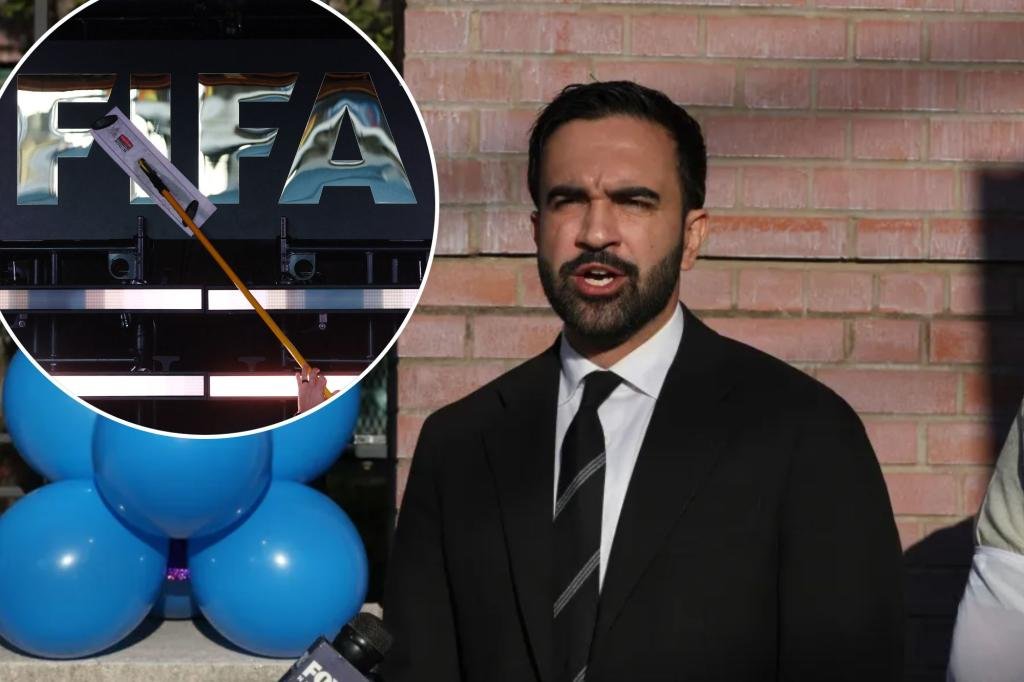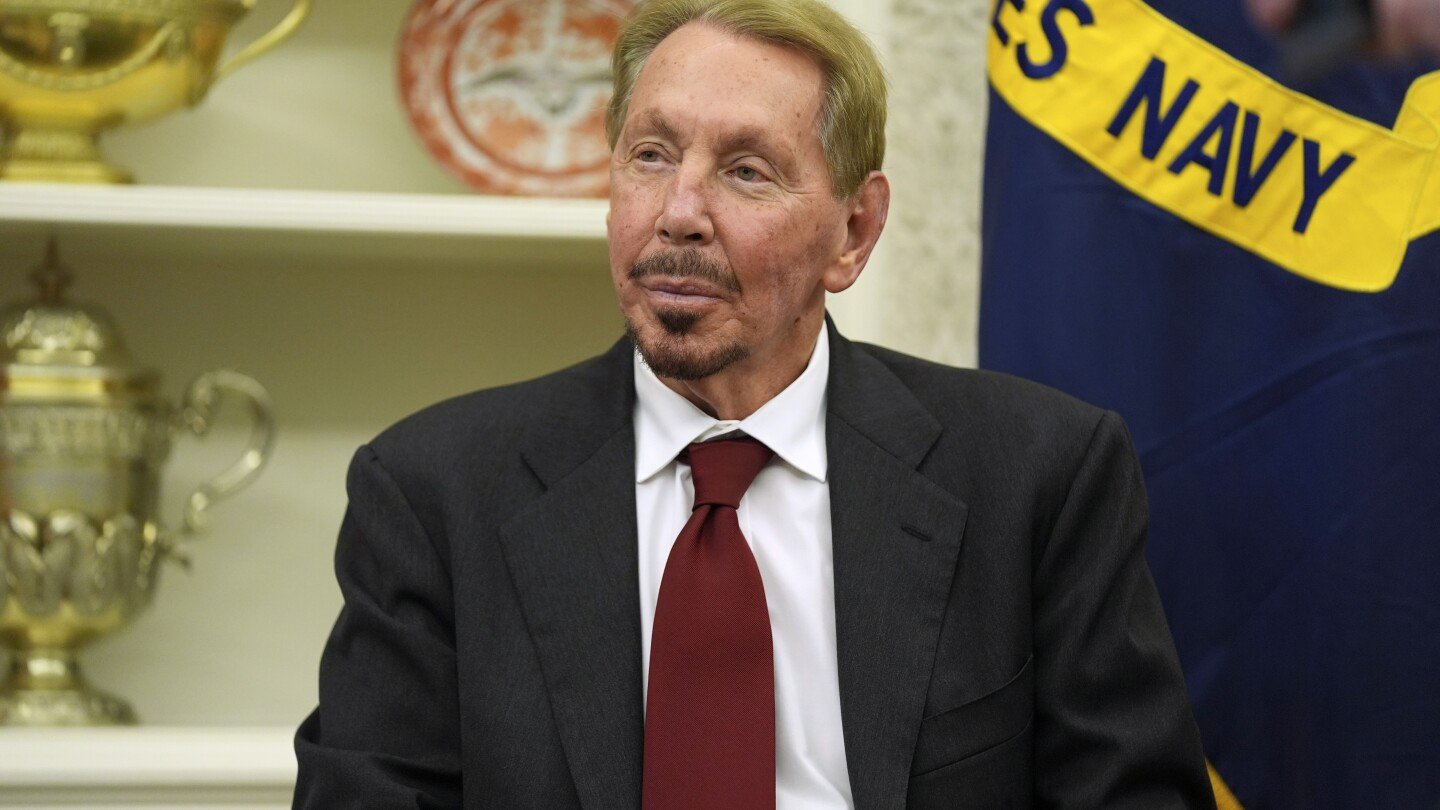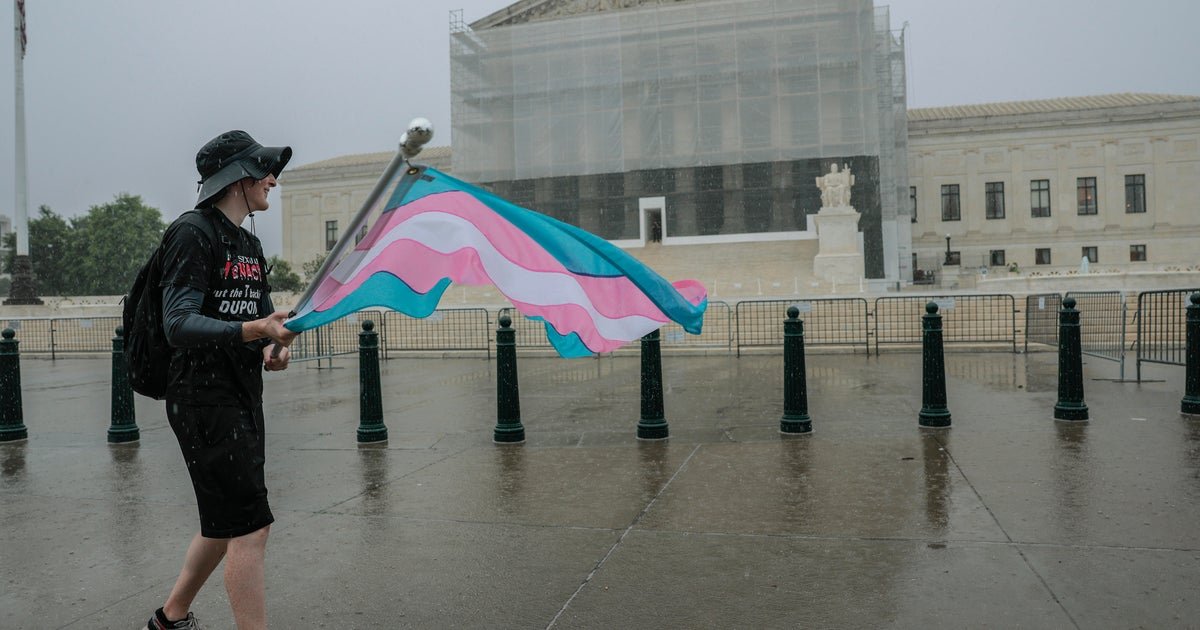Top Stories
Larry Ellison eclipses Elon Musk as world’s richest person

Oracle’s Larry Ellison became the richest person in the world Wednesday morning, with shares of the tech giant he co-founded surging more than 40%.
As of 10 a.m. ET, Ellison’s wealth was nearly $400 billion. Tesla CEO Elon Musk, who had occupied the top spot, currently has a fortune of about $385 billion, according to Bloomberg. The news outlet keeps tabs on the world’s wealthiest people with its billionaires index.
Behind Ellison and Musk in the rankings sit Meta founder Mark Zuckerberg, Amazon founder Jeff Bezos and Google co-founders Larry Page and Sergey Brin.
The rapid rise in Ellison’s wealth comes as he and his family push into artificial intelligence, media and politics.
Oracle’s stock move Wednesday was fueled primarily due to the company announcing a $450 billion-plus backlog for cloud services and multibillion-dollar computing contracts with major AI players Nvidia and ChatGPT backer OpenAI.
“Over the next few months, we expect to sign-up several additional multi-billion-dollar customers,” Oracle said. It expects that backlog of business will likely soon “exceed half-a-trillion dollars.”
The Ellison family further expanded its empire when Ellion’s son, David, recently completed an $8 billion takeover of CBS and MTV owner Paramount Global. That transaction was funded in part by $6 billion from the Ellison family fortune, CNBC reported.
Larry Ellison, a major backer of President Donald Trump, also recently visited the White House, announcing a massive datacenter project with Softbank’s chief Masayoshi Son and OpenAI CEO Sam Altman.
That project promised to use Oracle technology in creating the $500 billion network of datacenters.
Ellison, 81, co-founded Oracle more than 40 years ago. The company’s stock market value closed in on $1 trillion during Wednesday’s trading.
Top Stories
FIFA responds to Zohran Mamdani’s World Cup ticket price demands

FIFA responded to New York mayoral hopeful Zohran Mamdani’s campaign to get soccer’s global governing body to drop its plan for dynamic pricing for next year’s World Cup, jointly being hosted by the United States, Canada and Mexico.
The Democrat socialist launched a petition Tuesday night that he called “Game Over Greed” and demanded FIFA not use the pricing model, cap resale ticket prices and put aside 15 percent of tickets at a discounted rate for local residents.
In a statement provided to The Post on Wednesday, a FIFA spokesperson defended dynamic pricing as a “developing market practice” and said that it would be setting aside tickets for “specific fan categories” that will be at a “fixed price.”
“The pricing model adopted generally reflects the existing and developing market practice in our co-hosts for major entertainment and sporting events on a daily basis, soccer included,” the spokesperson said. “We are focused on ensuring fair access to our game for existing but also prospective fans, and are offering group stage tickets starting at $60, a very competitive price point for a major global sporting event in the U.S.”
In a video posted to social media on Tuesday night, Mamdani expressed concerns that tickets to World Cup matches — in particular ones taking place at MetLife Stadium — would be resold at an exorbitant rate on an official FIFA-run secondary market ticket platform.
And the mayoral frontrunner accused FIFA of using the World Cup as “opportunities for profit, as opposed to opportunities to extend this to the people who make this game so special” during a press conference at St. James Park in The Bronx on Wednesday.
The 33-year-old state assemblyman representing Queens said the petition has already drawn thousands of signatures after it went live on his campaign website Tuesday night.
Wednesday marked the start of the ticket pre-sale signup window for the 2026 World Cup, which will have eight matches, including the final, take place at MetLife Stadium next summer.
FIFA confirmed earlier this month that it would be using dynamic pricing for the 2026 World Cup, with the cheapest ticket prices for the group stage starting at $60 and reaching up to $6,730 for the priciest ticket for the final, which MetLife Stadium is hosting.
Soccer’s governing body is expected to rake in $3 billion from ticket sales from the 2026 World Cup, The Athletic reported.
The spokesperson for FIFA insisted that the official resale platform allowed fans a “safe and secure method” to sell and buy tickets within the bounds of U.S. law.
They also described it as “necessary to have a ticketing model that reflects our responsibility to provide access to fans, while at the same time ensuring as much value as possible is retained for redistribution into the game globally.”
“It is important to note, as a not-for-profit organization, the revenue FIFA generates from the World Cup is reinvested to fuel the growth of the game (men, women, youth) throughout FIFA’s 211 member associations globally,” the spokesperson continued. “As a matter of fact, FIFA expects to reinvest more than 90 percent of its budgeted investments for the cycle 2023-2026 back in the game to significantly boost global football development.
“Without FIFA’s financial support more than 50 percent of FIFA’s Member Associations could not operate.”
Top Stories
Musk loses crown as world’s richest to software giant Larry Ellison

NEW YORK (AP) — The battle among billionaires for bragging rights as the world’s richest person got heated Wednesday with the surprising surge of an old contender: Larry Ellison.
In a stunning few minutes after markets opened, stock in Ellison’s Oracle Corp. rocketed more than a third, enough for him to temporarily wrest the title from its longtime holder Elon Musk and hand it to the software giant’s co-founder.
But the stock market is fickle, and Musk was back on top by the end of the day, at least according to Bloomberg, as Oracle gave up a bit of its earlier gains.
For those keeping score, the difference now is a billion, which isn’t much given the size of the figures: Musk’s $384.2 billion versus $383.2 billion for Ellison.
The dueling fortunes are so big each could fund the lifestyles of 5 million typical American families for a year, about the entire population of Florida, allowing them to all quit their jobs. Or they could just tell all of South Africa to take a vacation for year and produce nothing, based on its gross domestic product.
The brief switch in the ranking came after a blockbuster earnings report from Oracle powered by multibillion dollar orders from customers as the artificial-intelligence race heats up.
Musk became the world’s richest person for the first time four years ago. A big reason is his stake in a hot, but now cooling, electric car maker, Tesla.
Stock in the company has been moving in the opposite direction of Oracle’s, dropping 14% so far this year. Musk also controls several private companies, including rocket maker SpaceX, his artificial intelligence company xAI and the former Twitter, now called X.
Ellison owns about 40% of Oracle, which means its surging stock added $100 billion to his net worth in little over a half-hour after the stock market opened.
The night before after trading had closed the company announced in an earnings report that it had struck more than $300 billion worth of new deals, including contracts with the OpenAI, Meta, Nvidia and Musk’s xAI. It said that it now expects revenue from its cloud infrastructure business to jump 77% to $18 billion this fiscal year. then rise to $144 billion in four years after that.
Ellison said in an earnings call that Oracle would not just be making money from its computing centers that help build the next chatbots, but from the day-to-day running of those AI systems to run robots in factories, design drugs in laboratories, place bets in financial markets and automate legal and sales work at companies.
In other words, Ellison’s surge in wealth Wednesday morning reflected investor expectations that computers will take over many jobs now done by humans — and Oracle will benefit.
Or as the 81 year old said on the call, “AI Changes Everything.”
Musk is hoping the same for Tesla and his own net worth, but he’s been struggling to convince investors.
The company had been promising a big turnaround in electric car sales after they fell sharply earlier this year, but the bounce back hasn’t happened. Musk has been downplaying the bad numbers by trying to shift investors’ focus to Tesla’s other business of making robots and advances in the artificial intelligence behind its cars and robotaxis.
While he keeps talking up the Tesla future, though, the bad news keeps coming.
Tesla sales in the European Union plunged 40% earlier this summer, the seventh month in row of drops, as customers balked at buying his cars after he took to X to support extreme right-wing politicians there. The company has been losing market share in the U.S., too, as buyers angry with his embrace of Donald Trump have stayed away from Tesla showrooms.
Oracle stock closed Wednesday at $328.33, a 36% jump. Tesla was up less than 1% at $347.79.
—-
AP writers Matt O’Brien in Providence, R.I., and Michael Liedtke in San Francisco contributed to this story.
Top Stories
Supreme Court lets transgender student in South Carolina continue using boys’ bathroom at school for now

Washington — The Supreme Court on Wednesday gave the green light for a transgender boy to continue using the restroom at his South Carolina school that corresponds with his gender identity while his legal challenge to a state ban continues.
The court declined a request from South Carolina officials to freeze a federal appeals court decision that blocked enforcement of its policy on transgender students’ restroom use solely against the ninth-grader, identified in court papers as John Doe. The state conditions funding on a school’s compliance with a rule prohibiting transgender students from using the facilities that align with their gender identity.
In an unsigned order, the court said its denial is “not a ruling on the merits of the legal issues presented in the litigation. Rather, it is based on the standards applicable for obtaining emergency relief from this Court.” Justices Clarence Thomas, Samuel Alito and Neil Gorsuch said they would have granted South Carolina’s request.
“Today’s decision from the Supreme Court reaffirms what we all know to be true: Contrary to South Carolina’s insistence, trans students are not emergencies. They are not threats. They are young people looking to learn and grow at school, despite the state-mandated hostility they too often face,” Alexandra Brodsky, litigation director for Public Justice’s Students’ Civil Rights Project, which is representing the student, said in a statement. “We are so thrilled that our client will continue to be able to use boys’ restrooms while his appeal continues, and hope today’s decision will provide hope to other trans students and their families during these difficult times.”
The restriction was first included by South Carolina’s General Assembly in a spending bill for fiscal year 2024 to 2025. State lawmakers renewed the ban in its latest spending measure for the new fiscal year, and it took effect July 1.
Last November, Doe, a transgender student who was enrolled at a public school in Berkeley County, South Carolina, and his parents filed a lawsuit alleging that the state’s restroom policy violates the Constitution’s Equal Protection Clause and Title IX.
But this summer, after the Supreme Court in June upheld a Tennessee law restricting access to gender-affirming care for minors experiencing gender dysphoria, a South Carolina district court paused Doe’s case and denied a request from Doe to block the measure while litigation continues. The judge’s order also came after the Supreme Court said it will consider in its next term, which starts in October, whether states can prohibit transgender athletes from competing on girls’ and women’s athletics teams.
Doe appealed to the U.S. Court of Appeals for the 4th Circuit, and last month, the court granted an injunction as to Doe. The 4th Circuit blocked South Carolina and its Department of Education from enforcing compliance with its policy forbidding transgender students from using restrooms that correspond with their gender identities, but only as applied to Doe.
The 4th Circuit cited in its ruling its 2020 decision in a case brought by Gavin Grimm, a transgender student who challenged his school’s restroom policy. The appeals court found that his Virginia school board’s policy requiring transgender students to use restrooms that correspond with their biological sex was unlawful.
Grimm’s case had been before the Supreme Court in 2017, but the court sent the dispute back to the lower courts. Then, in 2021, the high court declined to take up the case for a second time, leaving the 4th Circuit ruling in Grimm’s favor in place.
In blocking enforcement of South Carolina’s policy against John Doe, the 4th Circuit said that its decision in Grimm’s case “remains the law of this Circuit and is thus binding on all the district courts within it.”
-

 Business2 weeks ago
Business2 weeks agoThe Guardian view on Trump and the Fed: independence is no substitute for accountability | Editorial
-
Tools & Platforms4 weeks ago
Building Trust in Military AI Starts with Opening the Black Box – War on the Rocks
-

 Ethics & Policy2 months ago
Ethics & Policy2 months agoSDAIA Supports Saudi Arabia’s Leadership in Shaping Global AI Ethics, Policy, and Research – وكالة الأنباء السعودية
-

 Events & Conferences4 months ago
Events & Conferences4 months agoJourney to 1000 models: Scaling Instagram’s recommendation system
-

 Jobs & Careers2 months ago
Jobs & Careers2 months agoMumbai-based Perplexity Alternative Has 60k+ Users Without Funding
-

 Education2 months ago
Education2 months agoMacron says UK and France have duty to tackle illegal migration ‘with humanity, solidarity and firmness’ – UK politics live | Politics
-

 Education2 months ago
Education2 months agoVEX Robotics launches AI-powered classroom robotics system
-

 Podcasts & Talks2 months ago
Podcasts & Talks2 months agoHappy 4th of July! 🎆 Made with Veo 3 in Gemini
-

 Funding & Business2 months ago
Funding & Business2 months agoKayak and Expedia race to build AI travel agents that turn social posts into itineraries
-

 Podcasts & Talks2 months ago
Podcasts & Talks2 months agoOpenAI 🤝 @teamganassi

